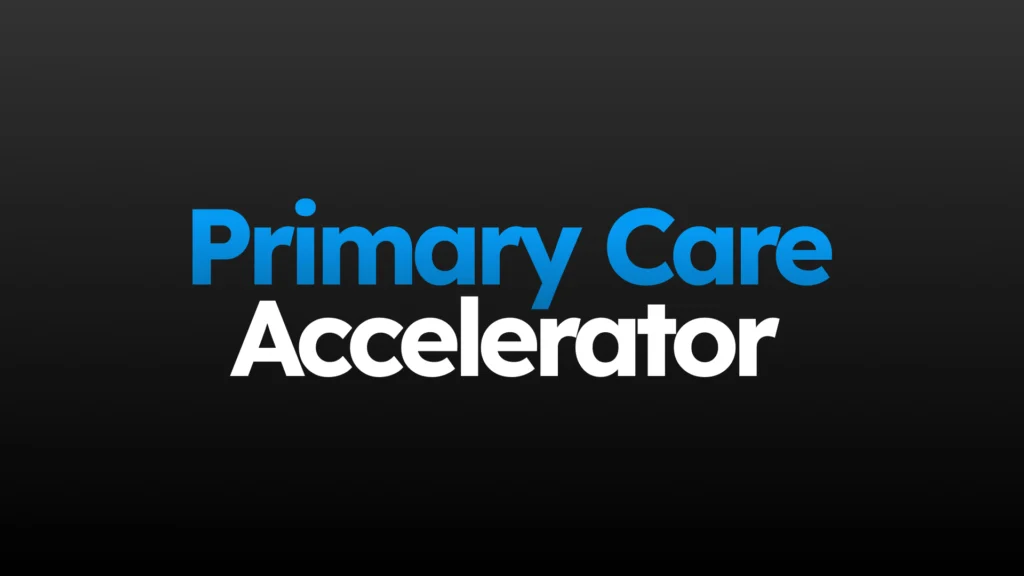When it comes to scaling healthtech, particularly in primary care, compliance isn’t just a box to tick—it’s a foundational element of your product. Healthtech startups that don’t prioritize compliance risk not only failure in the NHS but also potential legal and financial repercussions. For founders, the reality is that healthcare isn’t just another industry—it’s a heavily regulated environment with strict data protection and clinical safety requirements.
At Primary Care Accelerator, we guide startups through the labyrinth of NHS compliance, ensuring that products meet the necessary standards from day one. Here’s what you need to know about building for NHS compliance and why it matters.
1. Data Protection is Paramount: Meeting GDPR Standards
The first and most important piece of compliance is data protection. Health data is some of the most sensitive information in existence, and in the UK, it is governed by strict laws—primarily the General Data Protection Regulation (GDPR). If your product handles patient data, you must be clear on how this data is collected, stored, processed, and protected.
Startups need to demonstrate that their systems are secure, that data is anonymized where possible, and that patients have full control over their information. A failure to comply with GDPR not only damages your credibility but can also lead to hefty fines.
What’s required:
- Clear data storage policies
- User consent protocols
- Secure data transfer mechanisms
- Regular audits to ensure compliance
2. Information Governance (IG): The Framework for Compliance
In addition to GDPR, healthtech products must adhere to NHS Information Governance (IG) standards. IG is a set of principles that guide the handling, sharing, and protection of patient information within the NHS. It covers everything from confidentiality to access control, ensuring that the right people have access to the right information at the right time.
When building a healthtech product for primary care, it’s critical that you integrate IG requirements into the core design. This includes ensuring that your platform is capable of securely sharing information with other NHS systems (like EMIS or SystmOne) while maintaining strict user authentication and audit trails.
What’s required:
- Compliance with NHS Digital’s Data Security and Protection Toolkit
- Secure user authentication systems
- Data sharing agreements where necessary
3. Clinical Safety: The Risk of Harm to Patients
Clinical safety is another non-negotiable requirement in healthtech. While your product might not be directly diagnosing or treating patients, if it’s integrated into the clinical workflow, it could indirectly affect patient outcomes. This is why clinical safety assessments are so critical.
To meet clinical safety standards, your product must undergo rigorous testing to ensure that it doesn’t introduce any risks to patient care. That means identifying potential hazards, assessing the likelihood and severity of those risks, and mitigating them before your product is deployed in real-world settings.
What’s required:
- Clinical risk assessments and management plans
- Testing against clinical workflows to identify safety concerns
- Clear documentation of safety protocols and actions taken to mitigate risks
4. Ongoing Compliance: Keeping Up with Changing Standards
The regulatory environment in healthcare is constantly evolving. Data protection laws change, IG standards are updated, and clinical safety requirements become more rigorous. It’s not enough to meet compliance at launch—you need to build your product with ongoing compliance in mind.
Startups should plan for regular updates and audits to ensure that their product remains compliant as regulations change. This isn’t just about avoiding fines; it’s about maintaining the trust of the healthcare professionals who rely on your product and the patients they care for.
What’s required:
- Continuous monitoring of legal and regulatory changes
- Regular compliance audits and updates to your product
- Ongoing training for your team on compliance matters
Building healthtech for the NHS isn’t an overnight task. It requires a thorough understanding of the regulations that govern the healthcare system and a proactive approach to ensuring compliance at every stage of development.
At Primary Care Accelerator, we help startups navigate the complexities of NHS compliance, ensuring that your product meets the necessary standards for patient safety, data protection, and clinical safety. By focusing on compliance from the beginning, you not only mitigate risks but also set your product up for long-term success in the NHS.
